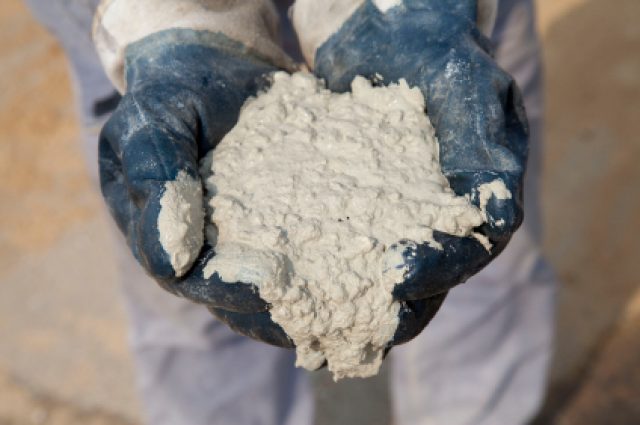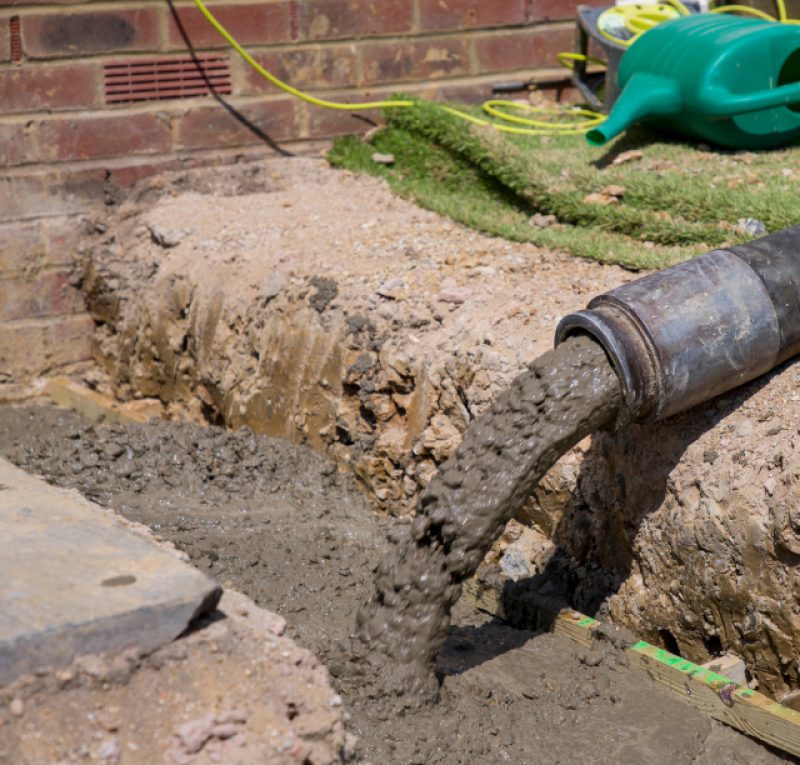Can You Pour Concrete In The Rain?
Rain is no stranger to the UK.
But if you’re planning to pour concrete, you might wonder if precipitation will stop your project in its tracks.
In this article, we’ll discuss how rain affects concrete, along with the best ways to protect your concrete pour while it’s raining.
Is it okay for concrete to get rained on?
You should avoid rain mixing with concrete where possible.
A concrete mix is a delicate balance of water, cement and aggregates. Ratios are designed to give the concrete the best strength and traits for its specific application.
Rainwater can throw this ratio off, negatively impacting its consistency, properties and final strength. This can weaken the concrete and spoil its surface.
Ultimately, this means that you should avoid pouring concrete in the rain. However, this isn’t always possible. It’s in these cases that protective measures should be taken.
Can you pour concrete in the rain?
Avoid pouring concrete when rain is forecast, and reschedule where possible. Though, sometimes to keep a project on track, concrete will need to be poured on days when there could be a risk of rain.
If rain is forecast, protect the ground by laying plastic sheets or tarpaulins over the pour site to keep the surface as dry as possible before the pour begins. For the pouring itself, pick a time in the day when rainfall is least likely according to the forecast.
If it begins raining during the pouring process, ensure you have a makeshift shelter prepared using timber struts and plastic sheets which can provide coverage to a large area.
Is it okay to pour concrete on wet ground?
Concrete should not be poured on wet ground or on ground that has water-filled cavities running through it. Nor should you attempt to work the collected rainwater into the concrete mix.
If the ground is wet, you need to move any excess water to the edges first, as mixing too much rainwater into the concrete can contaminate it and disrupt the mix ratio you’re trying to achieve.
How can I tell if concrete has been damaged by rain?
If your concrete has been damaged by rain, there might be some visual clues, such as an uneven or bumpy surface. Flaking, peeling, cracking, fissures or a dusty surface are also other signs that rain may have affected the concrete. You can also use a screwdriver to carry out a scratch test on the surface to see whether the rain has softened the concrete.
If you spot anything amiss, consult with your contractor or concrete provider to discuss repairs or next steps.
How do you protect freshly poured concrete?
Your concrete is poured. Now you may be wondering, should I cover concrete from the rain? Freshly poured concrete should ideally be protected from the threat of further rain for around 4 – 8 hours after pouring, with coverings and decent drainage systems in place.
After around the 8 hour mark, concrete is safe to be uncovered and complete its curing process for the next 28 days or so. Different mixes may come with different recommendations for drying and curing times, so get advice from a concrete professional.
Looking for affordable concrete in Sussex? With an only-pay-for-what-you-use policy, our family-run company provides bespoke concrete mixes for all types of projects to keep everything on time and within budget. To discover how we can help, get in touch with Sussex Ready Mix Concrete today.









